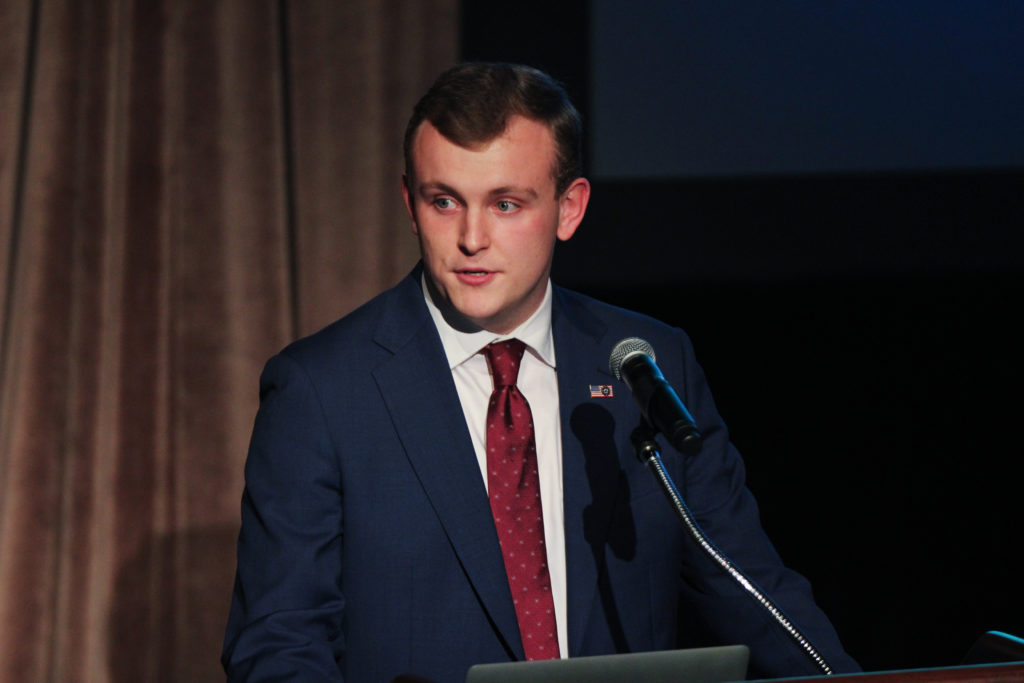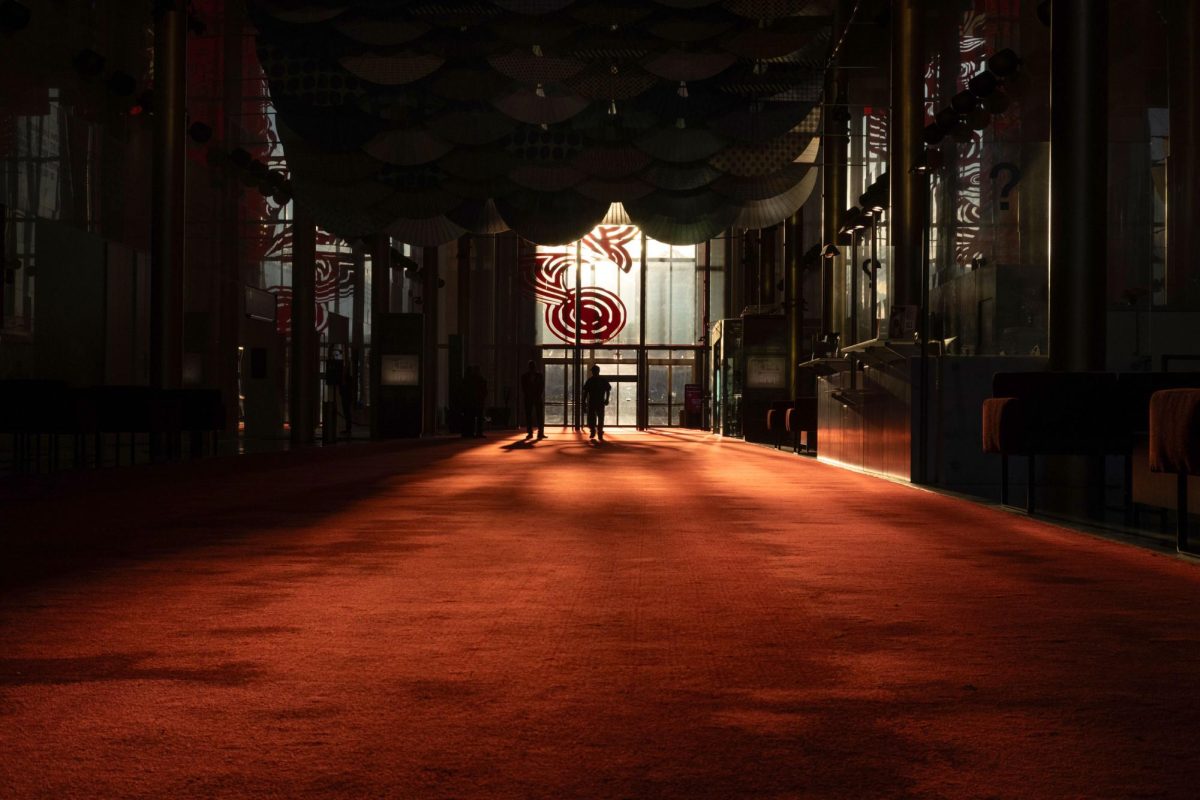Republican students voting this November say they’re divided on support for President Donald Trump, with some defectors opting for a different choice on Election Day.
As Trump seeks reelection as the GOP nominee, a coalition of national organizations have assembled a wide base of Republicans who oppose Trump as part of the “Never Trump” movement born in 2016. Students said a similar split exists at GW, and some are deciding whether to endorse or oppose Trump based on issues like populism, foreign policy and immigration.
Junior Patrick Burland, the director of public relations for GW College Republicans, said despite the organization’s endorsement of Trump and all Republican candidates “up and down the ballot,” multiple members intend to vote for Biden in the election.
“As an organization, we’re also a big tent party on campus,” Burland said. “We have members who are voting for Joe Biden, President Trump, other candidates, and we welcome people of all views and backgrounds no matter their stance on the presidential contest.”
College Republicans held a mock platform committee similar to the Republican National Convention in September, during which Burland said members voted on policies they want the party to support. He said members voted on some issues that weren’t mentioned in the 2016 or 2020 Republican platforms, like taking action against climate change.
Burland said he believes difference in opinion among members is “healthy for a political party,” especially on matters of ideology. Despite members’ personal views, he said the organization serves as “an arm of the GOP” that will continue to support the Republican Party.
But not all Republican organizations want fully to align with their party.
Senior John Olds, a former chair of College Republicans, said he currently serves as the political chair of Gen Z GOP – a national organization that has distanced itself from the election to create a new vision for the Republican Party. He said he views the future of the GOP as “up for grabs” no matter the outcome of the election, as the party’s top national issues and voter base eventually fall in the hands of younger Republicans.
Olds said Gen Z GOP isn’t as focused on what happens with the election but more on what comes next, pointing to the group’s hopes to diversify the party in terms of race, religion and sexual orientation. He said even if Trump is reelected, he wants Republicans to focus on reconsidering its values and diversity to create “an alternative for the left.”
“We are becoming the party of old White people, and we can’t be that,” Olds said. “We need to look inward to see why we are not appealing to people of color, people who care about the environment, people who might not have gotten a fair shake economically.”
Olds said he’s aware of Republican division on campus but said policy rather than personal morals seem to cause the split between voters. He added there’s a lot of reluctant as well as enthusiastic Trump voters, the latter of whom he said comprise a smaller group.
“No one really likes Trump as a man, but a lot of people support him because of his policies and agenda,” he said.
Despite “different perspectives on different issues,” Olds said he thinks the shared identity of being a Republican still binds conservative students together as a community.
Zev Siegfeld, a self-identified Libertarian who is a member of College Republicans and Young Americans for Liberty, said he plans to vote for Trump and identified the split among Republicans as similar to one within the Democratic Party. He said he thinks debate among party members serves the country well when citizens can “engage and battle” on their views.
“Democrats have the same issue, say with the Bernie wing of the party and the Biden wing of the party,” Siegfried said. “With any group of people this large you’re bound to have divides based on a given candidate or ideological preferences.”
Siegfried said his best friends, whom he met through College Republicans, are “pretty evenly split between the pro- and anti-Trump camps” through open political conversations they’ve had.
Mark Schalger, who identifies as a “more moderate” Republican who’s part of College Republicans and plans to vote for Biden, said he feels this division personally, as he’s struggled with his political identity during the Trump presidency.
“You see the way they treated John McCain and how they treat Mitt Romney, so I feel like if I disagree at all, I get called a RINO or ‘you’re a fake conservative,’ so I guess I’m just struggling to view myself as a Republican when people are so quick to defend Trump no matter what he does,” Schlager said.
Schlager said the election has more to do with gaining “our sense of decency back,” emphasizing bipartisanship for the good of the country after the election.
“I hope we realize that it’s country over party always, and if Trump loses, we get the old party of the McCains and the Abraham Lincolns back, where politics is all about respect, and it’s all about compromise, and it’s all about working across the aisle to get stuff done because you’re representing the people,” Schlager said.







